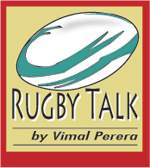Doping hits local Rugby, tackle it head-on
View(s):Two players, one close to calling it a day and another promising, have been reported as having tested positive for using banned substances; aka doping. This was in a domestic tournament. When you consider the numbers over the last few years, probably, Sri Lanka may be with those high up on the list. The issue at hand is whether this is because players are not educated on this subject, sheer callousness or, they are not disciplined.
Reading the previous inquiry reports of our misadventures, the most common mitigating submission was they did not understand, as they were less fluent in English or, could not read English. Some went onto blame the medical staff, coaches and also players. Thankfully, World Rugby did not check their signatures on their passports nor did a Facebook search. Signatures are invariably in English and Facebook post too, in English. How much respect this brings to the game is what the back scratchers need to answer. How does Hamid et al interpret bringing disrespect to the game, as it is important, with many of the young taking to the game.
 When Chief Executive of UK Anti-Doping Nicaaola Sapstead was asked at a hearing in September 2015, which sports she considered the most at risk of doping, her answer was not Athletics, but Rugby Union. This question is relevant to whether rugby in Sri Lanka is becoming the dirtiest sport.
When Chief Executive of UK Anti-Doping Nicaaola Sapstead was asked at a hearing in September 2015, which sports she considered the most at risk of doping, her answer was not Athletics, but Rugby Union. This question is relevant to whether rugby in Sri Lanka is becoming the dirtiest sport.
Why people use supplements is a consequence of the pressure they face, when they are labeled into thinking they are not fast or strong or, sans sufficient weight. Rugby being a physically demanding game, the chances of being lured into supplements are high. That is the time when the athlete resorts to shortcuts. Club Rugby has not been competitive to sap the energy and force players to seek supplements. The pressure is there to keep earning without keeping off. Then, why do they resort to supplements. Possibly, this is a subject for research. This is important, as the pressure will be more on schoolboys who will take the field soon. They have peer, coach, parent as well as old boy pressure. Sure, it is not the dirtiest sport but, a lovely sport that earns the sobriquet because of the people involved. These are the parasites of Rugby in Sri Lanka.
The League ended with Kandy winning, while Navy, Havelocks and CH follow in descending order. Kandy’s win in its last match by a mere 2 points- 30-28 – was surprising, after leading 22-0 at halftime. Suddenly, with 10 minutes and leading 25-14, the game ends 30-28. Normally, Kandy is on overdrive in the final stages of the game. The 4 tries by Havelocks, raised eyebrows, as they beat CH through bonus points, to be placed 3rd.
Lest I forget, there seems to be less awareness among all on the new definition of the Ruck- the mere presence of an attacking player in the tackle area, other than the ball carrier, constitutes a Ruck. This cancels the possibility to put hands on the ball, before the contact with the support player for the defenders. There is a thin line between getting there and the presences of an opposition. To avoid this problem, World Rugby has made the following change:
Law 16 trial. A ruck commences when at least 1 player is on his feet and over the ball, which is on the ground (tackled player, tackler). At this point, the offside lines are created. Players on their feet may use their hands to pick up the ball as long as this is immediate. As soon as an opposition player arrives, no hands can be used. The concept of “immediate” is quite vague. This should simply allow the referees to continue to play the breakdown turnover the way it already was (granted the defender has come through the gate and all of the other subtleties). It’s also consistent with the new definition of the Ruck. This brings to focus the use of the crocodile role. Can this be done if the contact is not needed? I have seen the roll done, as was before. Even before it looked dangerous and continues to look far worse. Is it done due to ignorance of the trial since August 2017 or, is it done as there is no whistle or a card.
But wait, again, where does that leave the crocodile roll? Was it not one of the things players were taught to do before the contact. That is now checkmated with the new law trials.
The other issue I see is the problem where players do not stay on their feet, which was talked about last week. This happened on or around the last 2 tries scored by Havelocks. It was going over, but more or less sleeping over the ball.
Another issue that I was privy to in 2 matches that makes me asks a question is, whether Sri Lanka Rugby employs people to cast remarks on the men in the middle or, is he being the clown trying to entertain those around.
Vimal Perera is a former Rugby Referee, Coach and an Accredited Referees’ Evaluator IRB


